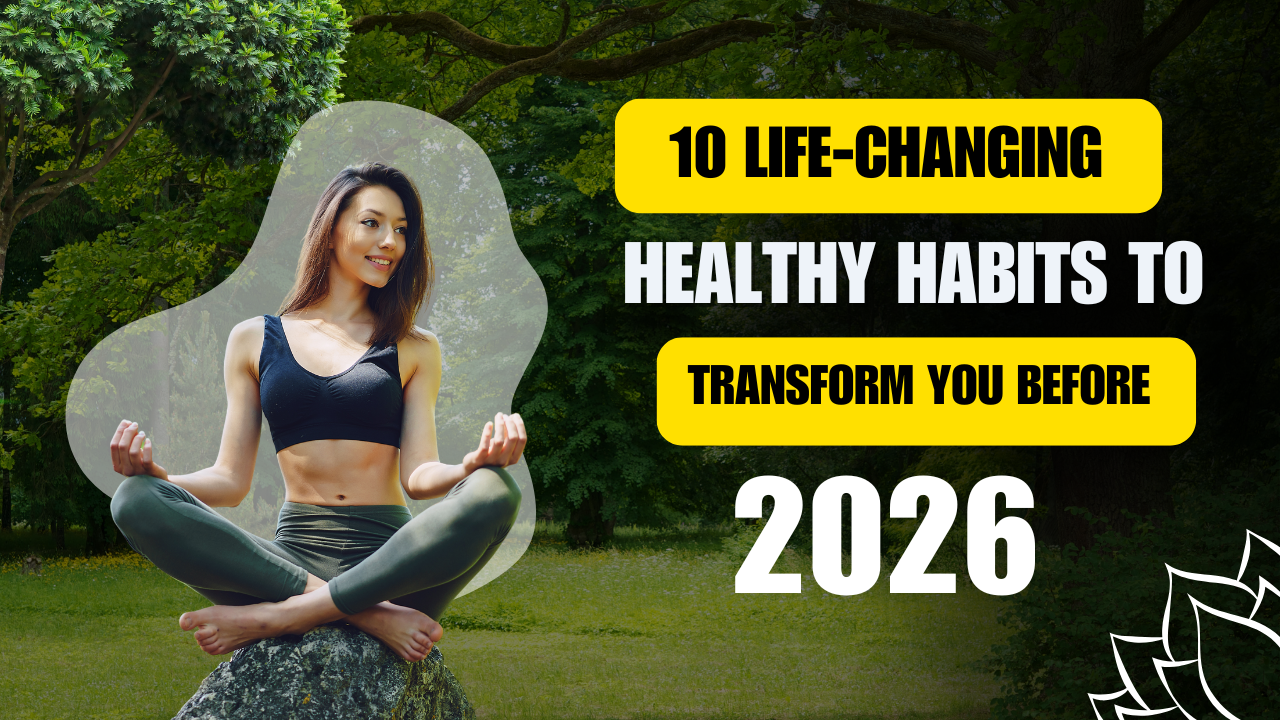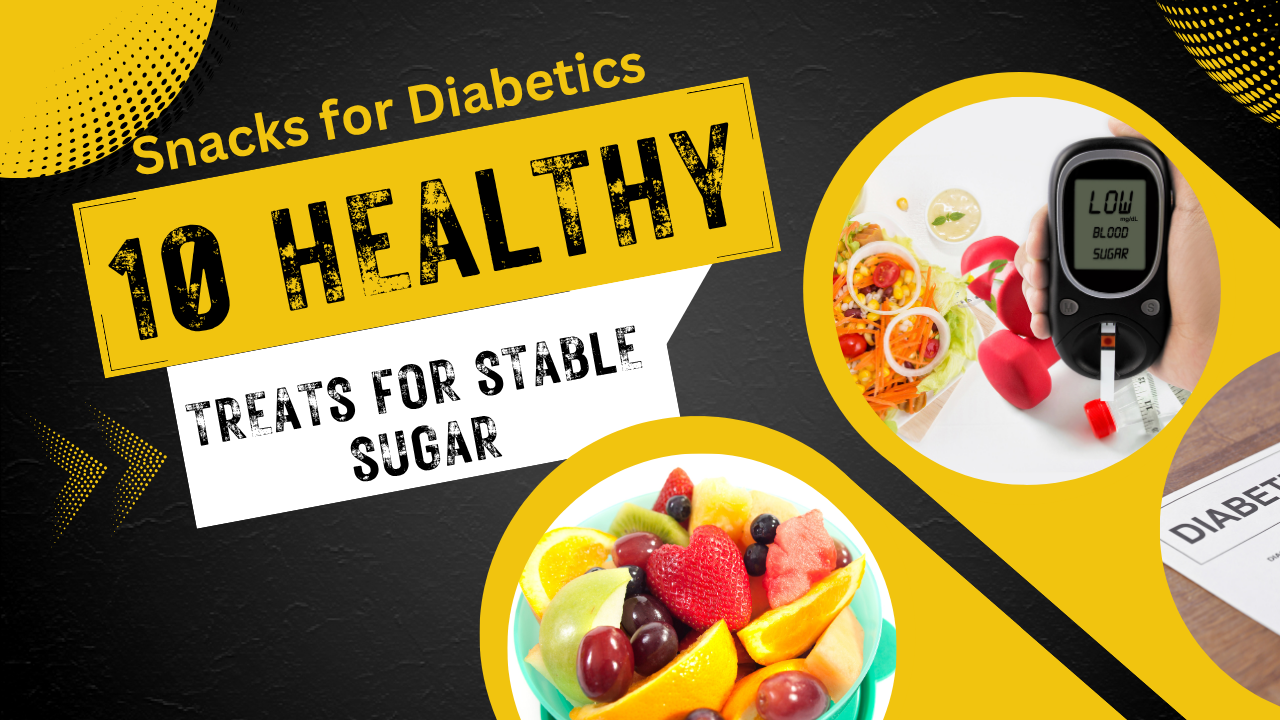True life transformation doesn’t come from overnight changes or instant success—it comes from steady, intentional habits built over time. The routines we follow each day may seem small, but they shape our future in lasting ways. Real growth isn’t about shortcuts; it’s about daily choices that align with the life you want to create.
If you want to improve your physical health, mental focus, and relationships, small habits can create big shifts. Simple actions—done consistently—help you build momentum. Whether it’s exercising regularly, practicing mindfulness, or making time for loved ones, your steady efforts matter more than grand gestures.
By 2026, the healthy habits you start today can lead to a healthier and more fulfilling life. It’s not about being perfect—it’s about being consistent. With daily progress, you can lay a strong foundation for lasting well-being and become your best self—physically, mentally, and emotionally. Your future is shaped by what you do now.
Wake Up Without Snoozing Your Alarm ⏰

The snooze button might feel like a small comfort, but it often makes waking up harder. Those extra minutes of sleep are usually not restful and can interfere with your natural sleep cycle. Instead of helping, snoozing leads to more fatigue.
Each time you drift back to sleep, your brain enters a new cycle it can’t finish. This fragmented rest leaves you groggy and unfocused. Getting up right away may be tough at first, but it helps you feel more alert and sets a clearer, more energized tone for your entire day.
Why it matters: This simple healthy habit sets the tone for your entire day. Getting up with your first alarm builds mental discipline and instills a sense of accomplishment from the moment you open your eyes.
How to implement:
Place your alarm across the room so you’re forced to get out of bed.
Create a consistent bedtime routine to ensure you’re well-rested.
Use an alarm with natural light or soothing sounds to wake up more gently.
Over time, waking up without snoozing becomes second nature, and you’ll notice increased energy, productivity, and a greater sense of control.
Start Your Day With 2 Glasses of Water
Your body naturally becomes dehydrated during sleep, so starting your day with water is a simple yet powerful healthy habit. Drinking water in the morning helps rehydrate your system, kickstart your metabolism, and support smooth digestion—all essential for feeling your best.
Hydration is also vital for healthy brain function. Even mild dehydration can affect your mood, focus, and memory. By making water the first thing you consume each day, you set a positive tone and give your body and mind the healthy boost they need to perform well throughout the day.
Why it matters: Drinking water first thing in the morning is a cornerstone of healthy living. It flushes out toxins, boosts your immune system, and increases alertness.
How to implement:
Keep a glass or bottle of water by your bed.
Add a slice of lemon for added antioxidants and digestive benefits.
Make it a ritual—before coffee, emails, or phone checks.
This one habit can improve your energy levels, skin clarity, and overall well-being in a matter of days.
Stretch or Do Yoga for 15 Minutes 🧘♀

Your body loses fluids during the night, making it important to start your morning with a glass of water. This healthy habit helps rehydrate your body, kickstarts your metabolism, and supports smoother digestion. It’s a simple step that sets a positive tone for the rest of your day.
Staying hydrated is also essential for healthy brain function. Even mild dehydration can impact your mood, focus, and memory. By making water part of your morning routine, you give your body and mind the healthy support they need to stay sharp, energized, and balanced.
Why it matters: It’s a powerful way to connect with your body and mind. Stretching in the morning promotes physical vitality while helping you approach the day with calm and clarity.
How to implement:
Follow a guided yoga video or use an app.
Focus on basic movements: cat-cow stretches, spinal twists, downward dog, and hip openers.
Sync your breath with your movements to deepen relaxation.
Fifteen minutes of mindful movement can reduce stress, prevent injury, and leave you feeling centered and grounded.
Read 10 Pages Daily of a Mindset or Health Book 📚
Books act as time machines, mentors, and silent companions, offering wisdom from different eras and perspectives. Developing a healthy reading habit—even just 10 pages a day—can lead to finishing 15–20 books a year. That’s a powerful way to feed your mind and grow consistently over time.
Each book is a chance to learn something new, shift your mindset, and improve your habits. Reading regularly keeps your brain active, reduces stress, and strengthens focus. It’s a healthy daily ritual that supports personal growth and lifelong learning in a simple, meaningful way.
Why it matters: Your thoughts shape your actions. When you feed your mind daily with powerful ideas, you slowly reprogram your beliefs, perspectives, and behaviors.

How to implement:
Choose books aligned with your goals—mindset, fitness, nutrition, or emotional intelligence.
Set a dedicated reading time—morning, lunch break, or before bed.
Highlight key takeaways or keep a book journal to internalize insights.
Small, consistent reading builds a sharper mind, better decision-making, and a growth-oriented outlook.
Eat Protein With Every Meal 🥩
Protein plays a vital role in muscle repair, hormone production, and keeping you full after meals. Making it a part of every meal is a healthy habit that supports energy, recovery, and long-term wellness. It also helps stabilize blood sugar levels and curb unhealthy cravings throughout the day.
Whether you’re working out regularly or simply aiming to stay strong as you age, maintaining lean muscle mass is essential. A healthy protein intake supports strength, metabolism, and overall function, making it a key part of a balanced and sustainable lifestyle.
Why it matters: A protein-rich diet keeps you fuller for longer, prevents energy crashes, and supports long-term weight management and metabolic health.
How to implement:
Include eggs, yogurt, tofu, beans, or lean meats with breakfast.
Opt for high-protein snacks like Greek yogurt, cottage cheese, or protein smoothies.
Track your intake to ensure you’re getting enough for your body’s needs.
Protein is a cornerstone of optimal nutrition—and consistently including it in meals can significantly impact your fitness and energy levels.
Walk 10,000 Steps a Day 🚶♂
The 10,000-step goal isn’t just a popular trend—it’s a healthy and realistic way to stay active each day. Walking regularly supports cardiovascular health, helps burn calories, and boosts overall physical fitness without needing intense workouts.
Beyond physical benefits, walking also improves mental clarity, reduces stress, and lifts your mood. It’s a healthy habit that fits easily into most routines, whether through short walks, taking the stairs, or moving more throughout your day. Reaching your step count is a simple, powerful way to support both your body and mind.
Why it matters: It’s one of the simplest yet most underrated forms of exercise. Walking supports weight loss, reduces the risk of chronic illness, and boosts creativity.
How to implement:
Break it up: 3,000 in the morning, 3,000 during lunch, 4,000 in the evening.
Use a step tracker or smartphone app for accountability.
Take the stairs, park farther, or walk while taking phone calls.
Reaching 10,000 steps becomes easier when it’s integrated into your daily rhythm—and the physical and mental rewards are profound.
Stop Scrolling Mindlessly on Social Media ❌

Social media can be a useful tool for connection and inspiration, but without limits, it can drain your time and attention. Uncontrolled scrolling often takes away from real-life interactions and personal growth. Creating healthy boundaries with screen time helps protect your focus and overall well-being.
Research shows that too much social media use is linked to anxiety, poor sleep, and lower self-esteem. A healthy digital routine—like setting screen limits or taking breaks—can improve your mood, boost productivity, and support a more balanced, fulfilling lifestyle both online and offline.
Why it matters: Mindless scrolling numbs your brain and steals time from more meaningful activities—like creating, learning, or connecting in real life.
How to implement:
Set time limits using built-in app controls or third-party apps.
Designate no-phone hours (especially during meals or before bed).
Replace scrolling with reading, walking, or journaling.
The more intentional you are with your screen time, the more energy and clarity you’ll gain throughout your day.
Sleep at the Same Time Every Night 💤
Quality sleep is a healthy foundation for overall well-being. Sticking to a consistent sleep schedule—going to bed and waking up at the same time each day—helps regulate your circadian rhythm. This leads to deeper, more restorative rest that supports both body and mind.
Better sleep improves your mood, sharpens focus, and strengthens your immune system. Making sleep a healthy priority can enhance your daily energy and resilience. By committing to regular rest, you give yourself the chance to function at your best—physically, mentally, and emotionally.
Why it matters: Sleep is when your body heals, your brain processes information, and your hormones balance. Disrupting this cycle has ripple effects on everything from appetite to memory.
How to implement:
Set a wind-down routine with dim lights, no screens, and relaxing activities.
Aim for 7–9 hours of sleep, depending on your needs.
Avoid caffeine or heavy meals late in the evening.
Treating sleep as sacred can transform your health more dramatically than most realize—and the benefits extend to every area of life.
Journal 5 Minutes a Day (Gratitude or Goals) ✍

Journaling is a healthy habit that promotes self-reflection and personal growth. Writing about gratitude or outlining your goals helps clear your mind, giving you clarity and perspective. This simple practice allows you to process your thoughts and emotions more effectively.
In addition to improving mental clarity, journaling also boosts emotional intelligence and resilience. By regularly expressing your feelings and experiences, you enhance your ability to understand and manage emotions. This healthy routine fosters a stronger, more balanced mindset, contributing to overall emotional well-being and personal development.
Why it matters: Gratitude journaling rewires your brain to focus on the positive. Goal journaling keeps your intentions clear and your progress visible.
How to implement:
Use a simple format: 3 things you’re grateful for or 3 goals you’re working on.
Keep your journal by your bed or at your desk.
Make it part of your morning or night time routine.
Five minutes a day can bring profound awareness, peace of mind, and a stronger connection to your purpose.
Spend Quality Time With Your Loved Ones ❤
In the end, healthy relationships are what truly matter. Building deep, meaningful connections with others is essential for mental and emotional well-being. These bonds provide a sense of belonging and support that are vital to overall happiness.
Spending quality time with those you care about not only boosts happiness but also reduces stress and enhances your resilience. A strong support system strengthens your ability to navigate challenges and fosters a sense of fulfillment. Prioritizing relationships is a healthy investment in your emotional and mental health.

Why it matters: Human connection is a basic psychological need. Without it, we feel isolated, regardless of success in other areas.
How to implement:
Schedule regular check-ins, family dinners, or walks with a friend.
Be fully present—no phones, no distractions.
Prioritize deep conversations over surface-level exchanges.
Investing in relationships nourishes your soul and creates a foundation of love, trust, and support—no matter what life throws your way.
Conclusion: Small Habits, Big Impact
Success, health, and happiness aren’t random—they result from consistent, intentional habits. By focusing on the habits you cultivate today, you set the foundation for a brighter future. Imagine waking up two years from now feeling energized, clear-headed, physically strong, and surrounded by meaningful relationships. That version of you starts with the choices you make now.
You don’t need to overhaul your life all at once. Begin with just two or three habits that align with your goals and commit to them for 30 days. Whether it’s exercise, healthy eating, or mindfulness, small steps lead to lasting change.
As these habits become second nature, gradually add more. Over time, what once felt like a challenge will become a seamless part of your daily routine. By 2026, these habits will feel effortless and will shape you into the person you’ve always wanted to become, creating a healthier, happier life along the way.
FAQs
- How long does it take to build these habits ?
Most habits take between 21 to 66 days to form, depending on the individual and the complexity of the habit. Start small and stay consistent. - Do I need to follow all 10 habits at once ?
No. It’s best to begin with 2–3 habits and gradually add more over time to avoid overwhelm and increase long-term success. - What if I miss a day—should I start over ?
Missing a day is normal. Don’t give up—just resume the next day. Progress, not perfection, is the key to lasting change. - Can these habits help with mental health too ?
Yes. Habits like journaling, walking, limiting screen time, and maintaining sleep routines are known to reduce anxiety and improve emotional well-being. - Are these habits suitable for all age groups ?
Absolutely. These habits are flexible and can be adapted to fit various lifestyles, fitness levels, and age groups, from teens to seniors.



